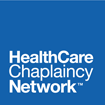Talking about What Matters: Advance Directives and Planning
Course Author: Kevin Massey, MDiv., BCC
This course, Talking about What Matters: Advance Directives and Planning, expands chaplains’ understanding of the importance of health care advance directives, equips chaplains to educate patients and families about their use, and delineates best practices in conversations about health care wishes and the competent completion of health care advance directives documents.
By the end of this course the learner will be able to:
- Demonstrate proficient understanding of the importance of health care advance directives.
- Distinguish between the importance of conducting conversations about health care values and wishes and the completion of health care advance directives.
- Demonstrate proficient knowledge of the different kinds of health care advance directives and their use.
- Competently assist other people in correctly completing health care advance directives
- Discern specific contexts when health care advance directives are most useful and important.
Course Outline
- Introduction: Why Complete Advance Directives
- History of Health Care Advance Directives
- Landmark Medical Ethics Cases
- Health Care Advance Directives Documents
- Health Care Advance Directives, Values, and Wishes Conversations
- Importance of Health Care Values and Wishes Conversations
- Communicating the “Who” of Health Care Values and Wishes
- Communicating the “What” of Health Care Values and Wishes
- Communicating the “How” of Health Care Values and Wishes
- Completing Health Care Advance Directives
- Summary
- Glossary
- References
Number of Continuing Education Hours: 20
Credit towards Board Certification Requirements: 1
Continuing Nursing Professional Development Contact Hours: 20
The Spiritual Care Association Nursing Division is an accredited provider of nursing professional development by the American Nurses Credentialing Center’s Commission on Accreditation.
Aligns with the following Quality Indicators in What is Quality Spiritual Care in Health Care and How Do You Measure It? (HCCN. 2016).
- Structural Indicator 1.C. Information is provided about the availability of spiritual care services.
- Process Indicator 2.B. Clients are offered the opportunity to have a discussion of religious/spiritual concerns.
- Process Indicator 2.C. An assessment of religious, spiritual, and existential concerns using a structured instrument is developed and documented, and the information obtained from the assessment is integrated into the overall care plan.
- Process Indicator 2.E. Families are offered the opportunity to discuss spiritual issues during goals of care conferences.
- Process Indicator 2.F. Spiritual care is provided in a culturally and linguistically appropriate manner. Clients’ values and beliefs are integrated into plans of care.
- Process Indicator 2.G. End of life and Bereavement Care is provided as appropriate to the population served.

